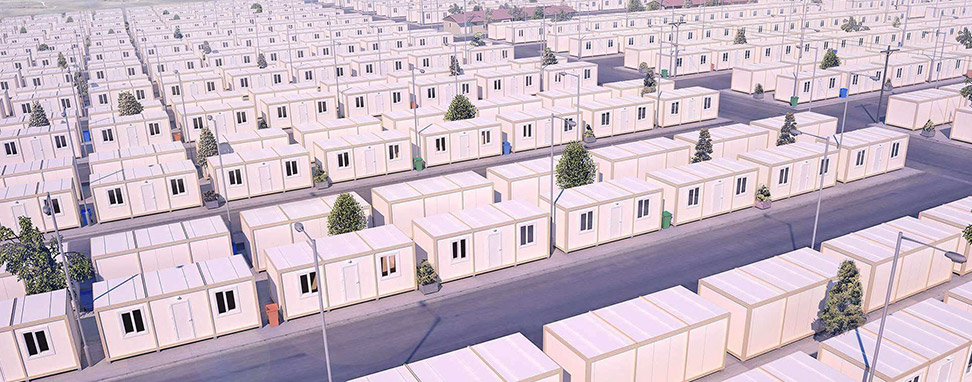The durability of flat-pack container house structural materials is a key advantage that contributes to their growing popularity. Here are the main aspects of their durability:
Steel Frame Durability
Corrosion Resistance
Protective Coatings: Steel frames are often treated with anti-corrosion coatings like galvanization or paint, which protect against rust and extend the lifespan of the structure.
Stainless Steel Options: In some cases, stainless steel, which is inherently more resistant to corrosion, can be used.
High Tensile Strength
Structural Integrity: Steel provides excellent tensile strength, making it capable of withstanding significant loads without bending or breaking. This is crucial for the overall stability and safety of the house.
Impact Resistance
Robustness: Steel frames can endure impacts from debris or accidental collisions, maintaining their structural integrity.
Insulated Panels
Thermal Stability
Temperature Resistance: Insulated panels made from materials like polyurethane or polystyrene retain their insulating properties over time, even under varying temperature conditions.
Moisture Resistance
Mold and Mildew Prevention: Properly sealed insulated panels prevent moisture ingress, reducing the risk of mold and mildew, which can compromise structural integrity and indoor air quality.

Lightweight Construction Materials
Non-corrosive Metals
Aluminum and Other Alloys: These materials are inherently resistant to rust and corrosion, making them ideal for parts of the structure exposed to the elements.
Durable Composites
Composite Materials: Used in construction are engineered for longevity, resisting environmental wear and tear.
Wood and Composite Finishes
Treated Wood
Protection Against Pests and Rot: Wood used in flat-pack container houses is often treated with preservatives to protect against insects, rot, and decay, ensuring a longer lifespan.
Durable Composites
Weather-resistant Finishes: Composite materials used for exterior cladding are designed to withstand UV radiation, rain, and temperature fluctuations without deteriorating.
Roofing Materials
Durable Roof Panels
Weatherproofing: Roofing materials, such as metal panels or durable composite shingles, are selected for their ability to resist wind, rain, and snow, preventing leaks and structural damage.
UV Resistance
Long-term Protection: Materials used for roofing often have UV-resistant properties to prevent degradation from sun exposure.
Corrosion-resistant Fasteners and Connectors
Stainless Steel or Coated Fasteners
Longevity of Joints: Using corrosion-resistant fasteners ensures that joints and connections remain strong and secure over time, preventing structural weaknesses.
Design and Engineering
Load Distribution
Optimized Structural Design: The design of flat-pack container houses considers load distribution and stress points, ensuring that materials are used in a way that maximizes their durability.
Seismic and Wind Resistance
Engineered Stability: These houses are often engineered to withstand seismic activity and high winds, with structural materials chosen for their ability to maintain integrity under such forces.
Maintenance and Upkeep
Ease of Inspection
Accessible Structure: The modular design allows for easy inspection and maintenance, ensuring that any potential issues can be identified and addressed promptly.
Low Maintenance Requirements
Durable Finishes: The use of durable, low-maintenance materials reduces the need for frequent repairs and upkeep, contributing to the long-term durability of the house.
By utilizing these robust and resilient materials and incorporating protective treatments and coatings, flat-pack container houses achieve a high level of durability, ensuring they remain safe, secure, and functional for many years.








